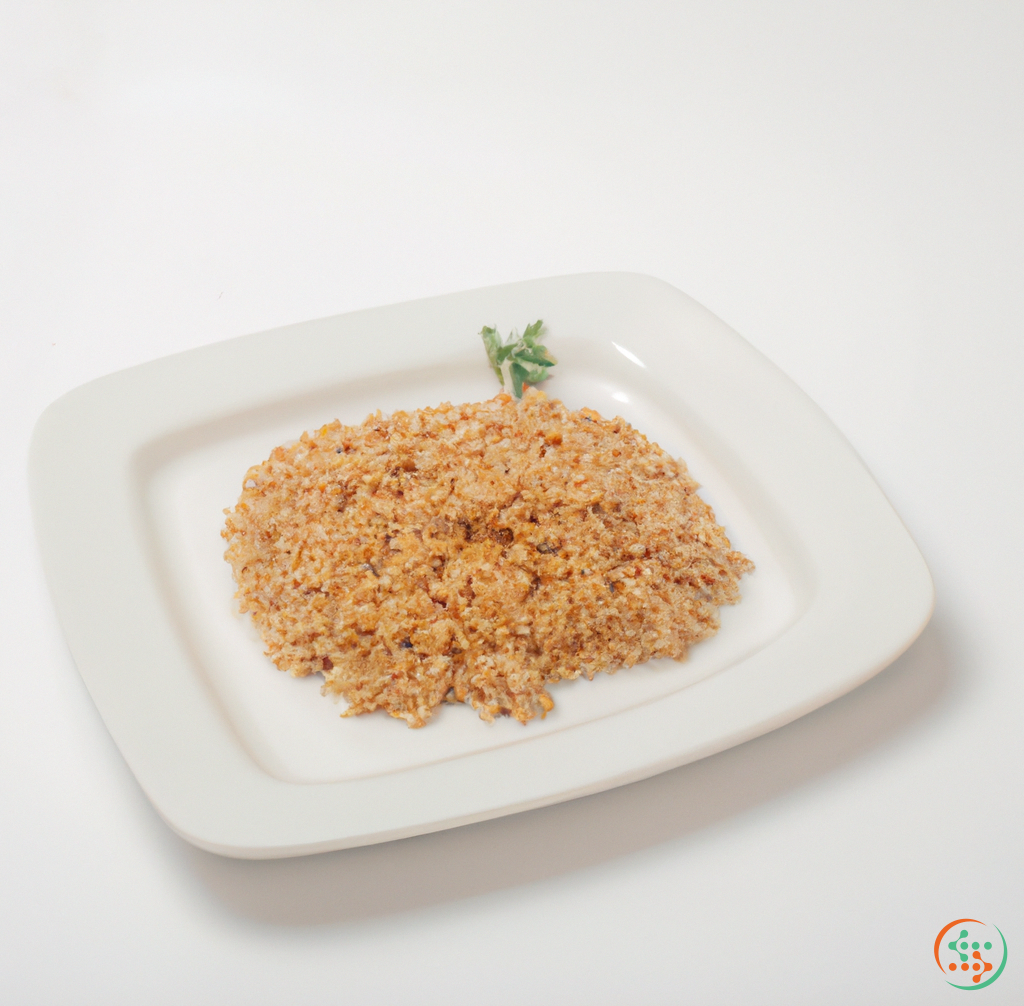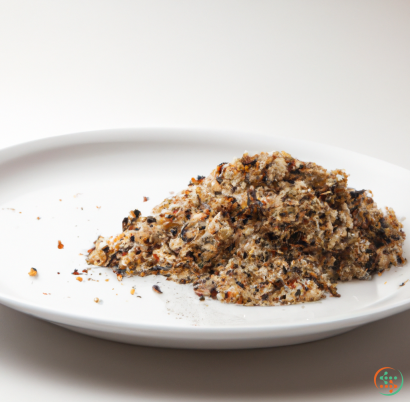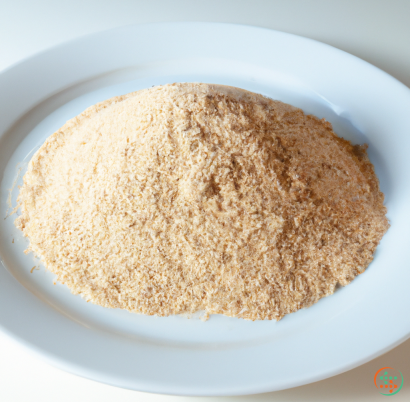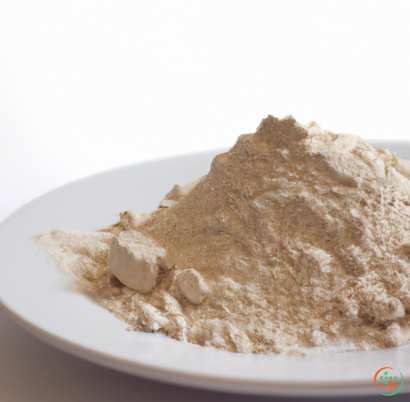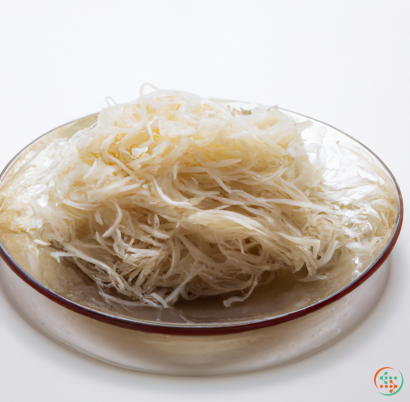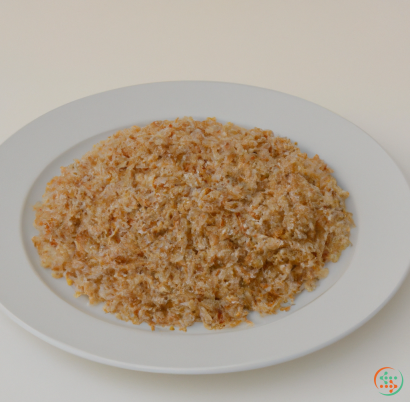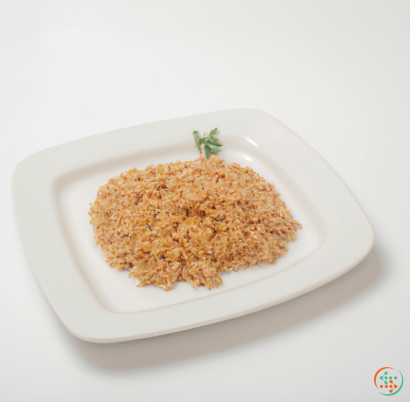Bulgur
Around the world, grains are an incredibly versatile ingredient used in countless dishes and recipes. Bulgur is a commonly used grain, both in traditional Mediterranean and Middle Eastern dishes and also in modern cooking. If you've heard of it, but don't know what it is, or why it's so popular in these cuisines, then keep reading to learn more about the Nutritional powerhouse that is bulgur.
Bulgur is a form of wheat that has been dried and cracked. It is made from dicoccum wheat which is the most common kind of wheat grown in the Mediterranean and Middle East. The wheat is cooked and dried in the sun, and then further broken down into different sizes. Coarse bulgur is used to make tabbouleh, while fine bulgur is used to make kibbeh. Bulgur is considered to be a healthy alternative to other grains as it is high in fibre, protein, and other vitamins and minerals.
In terms of texture and flavour, bulgur is very similar to whole grain wheat pasta, or cracked wheat. It can be used as an alternative to rice, quinoa or couscous in many dishes. Bulgur is a versatile ingredient and has a lot of uses. It can be used as a main ingredient in dishes such as kibbeh and tabbouleh or as a base or side dish for a variety of dishes. It can also be added to soups, salads, pilafs, and stuffing. Bulgur can also be used as a substitute for other grains like couscous and is a fantastic option for vegan and vegetarian dishes.
In terms of nutrition, bulgur is a great choice. Bulgur is rich in carbohydrates, fibre and vitamins, as well as being low in fat and sodium. It is also a good source of protein, with two ounces providing 7 to 8 grams of protein. Bulgur also contains minerals like iron, Magnesium, phosphorus and zinc. This makes it a great choice for those who want to boost their intake of these essential nutrients.
Bulgur is also very easy to prepare and can be prepared in a variety of ways. Bulgur can be boiled swiftly, like rice, for about 10 to 15 minutes or simmered for about 30 minutes. It can also be cooked in the oven or in a slow cooker for a different taste and texture. When cooked correctly, bulgur will become fluffy and tender and can be used as a base for a variety of dishes.
When it comes to health benefits, bulgur is packed with antioxidants, which can help protect against cell damage and various diseases. It is also high in fibre and can help improve digestion and keep you feeling full for longer. Studies have also shown that bulgur has a low glycemic index (GI), which means it won't cause a sharp spike in your blood sugar levels like some other carbs can. This can be beneficial for those with diabetes.
Overall, bulgur is a nutritious grain that is easy to prepare and packed with a range of health benefits. It can make a great addition to your diet and is a fantastic way to add some variety to your meals. Whether you use it as a side dish, main ingredient, or creative substitute for other grains, bulgur is sure to provide you with plenty of nutritional benefits.
What is Bulgur?
Bulgur is a wheat-based grain product found in many staple dishes across the Mediterranean. It's commonly sold in many supermarkets as a nutritious and versatile ingredient widely used in salads, stews, and pilafs. Bulgur is made by taking whole wheat kernels, boiling them, drying them, and then grinding them into particles.
The Bulgur Creation Process
The process of making bulgur starts with hand-harvesting mature wheat in late summer or early fall. During this process, the heads of wheat are cut from the stalks, combining the healthy grains with some of the seed’s hull.
Wheat cleaning is the next step in the bulgur creation journey. This step is critical for comprehensive removal of unwanted elements such as sticks and stones. Cleaning is done using machines with special compartments which pull unwanted items away from the wheat.
After cleaning, the wheat is then placed in water. This process is known as de-hulling, allowing the seed’s hull to separate from the grain. After de-hulling, the seed’s hull and germ are removed completely, leaving behind the smaller wheat kernels which will be used to make bulgur.
Parboiling is the next process that the wheat kernels go through, which involves cooking them in water before drying. This process not only destroys many of the spoilage microorganisms, it also helps to remove some of the protein-starch gel created during cooking.
Once the wheat kernels have been parboiled, the next step is to dry them. This is done either by a machine called a “dehydrator” or by sun-drying. The drying process ensures that the wheat kernels are free of moisture which helps to extend their shelf-life.
After drying, the wheat kernels are ground into small, uniform pieces. This is an important step as the size and shape of the bulgur pieces need to be uniform in order for them to be used in cooking.
The final step in the bulgur creation process is sorting. In this step, the bulgur pieces are sorted according to their size, with the smallest pieces being used for cooking, and larger pieces being used for salads and other dishes.
Transportation of Bulgur to Dinner Plates
Once the bulgur has been created and sorted, it’s time to get it to the dinner plate. This process involves a combination of transportation methods and storage facilities.
When bulgur is being transported from the producer to the consumer, it needs to be packed into suitable storage containers. Often this will be in the form of bulk bags or cardboard boxes. It is important that the bulgur is carefully packed so that it is kept safe from the elements and does not become damaged or contaminated during the journey.
Once the bulgur has been packed, it then needs to be transported to the consumer. This is usually done using a dedicated fleet of vehicles (such as trucks or boats) or via public transportation (such as the rail network). Depending on the distance and transport method, the bulgur may be stored in temperature-controlled coolers to keep it safe and fresh.
Once the bulgur reaches its destination, it will be stored in either warehouses or in retail outlets. Warehouses are important for keeping bulgur fresh and safe from contamination. Retail outlets also allow consumers to buy bulgur straight from the shop and take it home for use in their own cooking.
Finally, when it’s time for the bulgur to be used, the consumer can take it home and cook it up for a delicious meal. Depending on the dish, the bulgur will need to be cooked in a variety of different ways. It can be boiled, steamed, baked, fried, or roasted. Bulgur can also be cooked with a combination of typical Mediterranean herbs and spices to create a flavourful side or main dish.
Conclusion
Bulgur is a nutritious and popular ingredient found in many Mediterranean dishes. It is made using several steps, starting with hand-harvesting mature wheat, cleaning, de-hulling, parboiling, drying, grinding, and sorting. Once it is ready, it is then transported to consumers via a network of storage facilities and transportation vehicles. Finally, consumers can take the bulgur home and cook it up for a delicious and nutrient-rich meal.
| Beta-Carotene | 0.001 mg | |
| Vitamin E | 0.01 mg | |
| Vitamin K | 0.5 ug | |
| Vitamin B1 | 0.06 mg | |
| Vitamin B2 | 0.03 mg | |
| Vitamin B3 | 0.001 grams | |
| Vitamin B4 | 0.0069 grams | |
| Vitamin B5 | 0.34 mg | |
| Vitamin B6 | 0.08 mg | |
| Vitamin B9 | 0.018 mg |
| Calcium | 0.01 grams |
Daily Value 1.3 g
|
| Iron | 0.96 mg |
Daily Value 0.018 g
|
| Magnesium | 0.032 grams |
Daily Value 0.4 g
|
| Phosphorus | 0.04 grams |
Daily Value 1.25 g
|
| Potassium | 0.068 grams |
Daily Value 4.7 g
|
| Sodium | 0.005 grams |
Daily Value 2.3 g
|
| Zinc | 0.57 mg |
Daily Value 0.011 g
|
| Copper | 0.08 mg |
Daily Value 0.9 mg
|
| Manganese | 0.61 mg |
Daily Value 0.0023 g
|
| Selenium | 0.6 ug |
Daily Value 0.055 mg
|
| Tryptophan | 0.048 grams | |
| Threonine | 0.089 grams | |
| Isoleucine | 0.114 grams | |
| Leucine | 0.208 grams | |
| Lysine | 0.085 grams | |
| Methionine | 0.048 grams | |
| Cystine | 0.071 grams | |
| Phenylalanine | 0.145 grams | |
| Tyrosine | 0.09 grams | |
| Valine | 0.139 grams | |
| Arginine | 0.144 grams | |
| Histidine | 0.071 grams | |
| Alanine | 0.109 grams | |
| Aspartic Acid | 0.158 grams | |
| Glutamic Acid | 0.973 grams | |
| Glycine | 0.124 grams | |
| Proline | 0.32 grams | |
| Serine | 0.145 grams |
| Total Sugars | 0.1 grams |
per 100g
|
| Palmitic acid (16:0) | 0.04 grams |
|
| Total Saturated fatty acids: | 0.04 g | |
| Oleic acid (18:1) | 0.03 grams |
|
| Total Monounsaturated fatty acids: | 0.03 g | |
| Linoleic acid (18:2) | 0.09 grams |
|
| Total Polyunsaturated fatty acids: | 0.09 g | |
